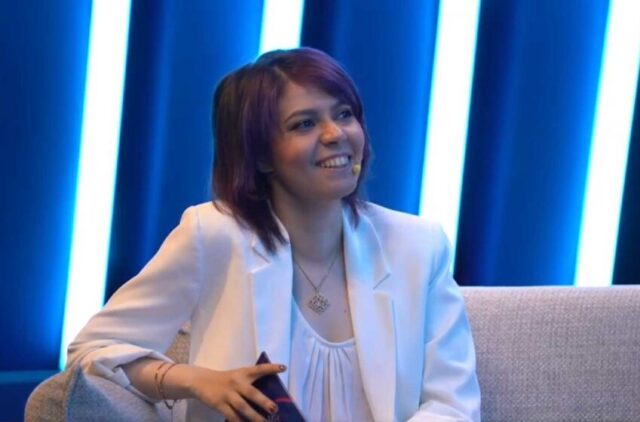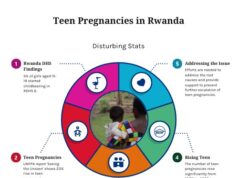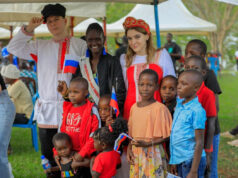
By Lara Reffat
Video games have taken on a new life with social media and live streaming services. But in North Africa the world of tournaments and gaming content is just beginning to really heat up. MENA girl-gamers are also attracting more notice. Three of them sat down with AWiM News to give insight into the community along with a few suggestions for those concerned about safety and inclusion in online spaces.
Getting into Gaming
Almost as far back as Yasmine Abo El-Fotoh can remember, she was gaming. Popularly known as Yasmine O, the Egyptian gamer and radio presenterhas developed a strong passion and following. She also produces content for Geekay esports.
She grew up playing games with her brother. But she emphasises it was less like playing, and more of an opportunity for her brother to practice his own skills. He was older than her, so matching his skills meant constantly improving her own.
“It was at the time when Nintendo 64 got introduced in 1990. It was, I think, the early 90s. And we got it when I was four or five, so this is how I initially got into it,” she said.
Gaming was a big deal in her household, but as years passed she noticed it wasn’t the same in everyone else’s.
“Maybe I grew up a little. And noticed that it was mainly men’s thing because they used to share that in my family.”
Abo El-Fotoh took a break from gaming as her family wanted her to focus on high school and university studies. It wasn’t until her third year there that she got back into it.
“And then I started catching up ever since and I didn’t feel like I’m missing out. I did have a couple of my friends that I play with multiplayer,” she said.
Wasema El-Boraey is an Egyptian gamer, content creator, and an esports player for Geekay esports.
“I’ve been doing this for about a year and a half now. So I’m relatively new. But I’m getting settled into it.”
Gaming was originally a fun way to bond with her sister. While gaming was a big part of her childhood, none of her friends truly shared her passion.
She set it aside and like Abo El-Fotoh was reintroduced to it as an adult.
She noticed that her female friends who did have some interest in gaming would typically abandon it sometime around high school.
“I think part of it is that it’s always been defined, when we were kids, as ‘Oh girls have dolls and boys play video games. I felt kind of pushed back out by it. So around like high school, I quit video games for a couple of years,” she said.
One day she got the urge to get back into it. After downloading a game, she was transported back to her childhood.
“It’s the best feeling ever and so getting back into it made me realize it’s really important.”
Imane “eNami” Amzilalways liked sports, in college that soon included esports.The Moroccon gamer found a like-minded group of people and they would regularly host tournaments. She is now also an interviewer and a well-established analyst.
The tournaments soon expanded to being online and opened up to also include the European region for the game, ‘League of Legends’. Amzil also feels most at home with the game, holding an impressive track-record in various tournaments.
Looking back at her earlier days, even when female games were present they were outnumbered.
“I joined a female team that we created back then, but most of the time it was male-dominated,” she said.
Amzil believes that limited societal support and bullying might turn potential girl gamers away from gaming. However, MENA gamers are increasingly gaining notice in online communities.
Finding Spaces
When Abo El-Fotoh got back into gaming she did not immediately feel the need to find a wider community. She was just happy to be rediscovering her passion. Streaming opened up new doors for her.
Abo El-Fotoh had heard about the live streaming service Twitch, but it was some time before she began using it. When she did start it was during the pandemic and with a simple beginner’s set-up.
Despite the initial process of trial and error, she was touched by the amount of support from other gamers.
Toxicity is a common topic of conversation in gaming communities. But Abo El-Fotoh paints a picture that isn’t black and white, especially for MENA gamers.
She is happy that more girl-gamers are getting opportunities.“I’ve noticed girl streamers popping up. Last year, just like to actually start seeing a lot of Egyptian women, a lot of Saudis, a lot of minorities and a lot of Tunisians.”
As someone who also works in radio, Abo El-Fotoh believes she has an edge when it comes to dealing with online trolling. Though she doesn’t let them get to her, she needs her community to feel safe. It’s all about trying “to protect the stream vibe.”
She suggests the best thing girl gamers can do is to block and report online trolls. No complicated strategies or second-guessing, seek support when desired and “just block.” Abo El-Fotoh also feels that streamers are in safe hands with Twitch’s anti-bullying policies.
El-Boraey has seen gender-based bullying and points out the instances when they are most common. She believes that trolls and bullies are often on high alert ready to mock girl gamers after hearing them speak.
“You have to do a voice check and so being a female is a little bit harder to navigate because of that. I’ve even heard a lot of female gamers have to use a voice-changer if they want to just play.”
Understanding representation
Video game representation has several layers, including mainstream media. Western news media has repeatedly been criticised for neglecting to include women in their gaming industry stories.
One 2016 paper, published in the student journal Press Start, sought to examine the media’s role by analysing a sample of game-related news stories. It found that “only 10 of the other 60 articles [not including stories centred on sexism] indicated that women were gamers at all. Of those articles, only four actually quoted female gamers.”
In the MENA region, mainstream gaming news coverage is relatively scarce. But gamers may look to streamers for their representation.
However, Abo El-Fotoh cautions against putting too much stock on any individual gamer to represent the community. It’s more about gamers seeing that general balance in the community as the industry expands.
Similarly, Amzil believes increased representation may go hand in hand with acceptance especially when the message is that gender shouldn’t be a barrier.
“There are a lot of girls right now who speak about it and who are from our region who we can relate to. And I think the fact that we have some inspiration is helping us know that we’re not alone,” she said.
Finally, there is representation as is offered by the games themselves. Amzil got her gaming name “eNami” partly through a video game character named Nami. She notes how empowering it can be for a budding gamer to see themselves reflected.
El-Boraey meanwhile also looked up to female characters as a kid. “I grew up seeing all these strong female characters in video games. I don’t think I would have had this experience without that,” she said.
She believes the game ‘Valorant’ is one of the more progressive ones around. It is also frequently played in tournaments. El-Boraey hopes that popular games like Valorant continue to create more Arab characters.
All three gamers share not only their passion in common but their support. They also have similar goals such as continuing to participate in gaming events and producing related content. Most of all, they just want to keep having fun.
The MENA gaming community is rising up at a time when social media is more vocal about fighting harassment. The community’s timely rise could help to distance them from sexist ties that some popular communities may still hold.
With North African women and girls leading the conversation, they can be expected to break records and new ground.
This article is part of the African Women in Media (AWIM) Graduate Trainee Programme in collaboration with Fojo Media Institute













